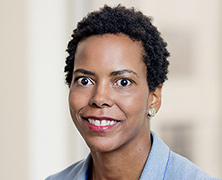Don’t Be Afraid to Take an Unorthodox Approach to Your Career
I wish I could say that I’ve known since birth that I wanted to be a lawyer, but that wouldn’t be at all truthful (at six, I wanted to be an astronaut). In addition to my love of the universe and all of its mysteries, I have always been fascinated with mathematics, and in particular algebra. For me, math seemed like a giant puzzle waiting to be solved, and if you focused your efforts and invested the time, you could arrive at the right answer eventually. I also loved the idea of being a teacher. I cannot tell you how many of my dolls were “taught” math by me on Saturday mornings, with me dutifully instructing at the miniature chalk board my mom bought for me one Christmas. So it would only make sense to combine my two loves: math and teaching, and become a math teacher.
Well, as most folks who know me would attest, I’m not particularly orthodox in my approach about anything, so the fact that I ended up as a corporate finance lawyer comes as no big surprise. (I actually decided to sit for the LSAT exam while studying abroad in Spain my next to last semester before graduating early from UVA. Really. Again, unorthodox.)
At the end of the day, I love solving difficult problems, and my practice affords me the opportunity to do that every single day, from counseling my clients regarding transactions that make home ownership possible for millions of people, to making critical decisions serving as a member of my firm’s Executive Committee, to helping my community by serving on boards of life-transforming nonprofits. During my two decades of practice, I have been fortunate to be able to sit at tables (both literally and virtually) at the firm and in my community where I could advocate for issues that I am incredibly passionate about: diversity and equity. Most recently, I have been involved in initiatives focused on health disparities and on ways the black faith community and the medical community can work together to ensure health equity for the most vulnerable populations in our community.







